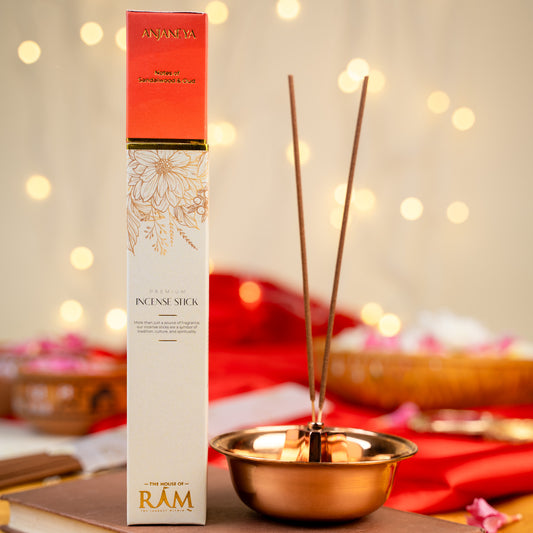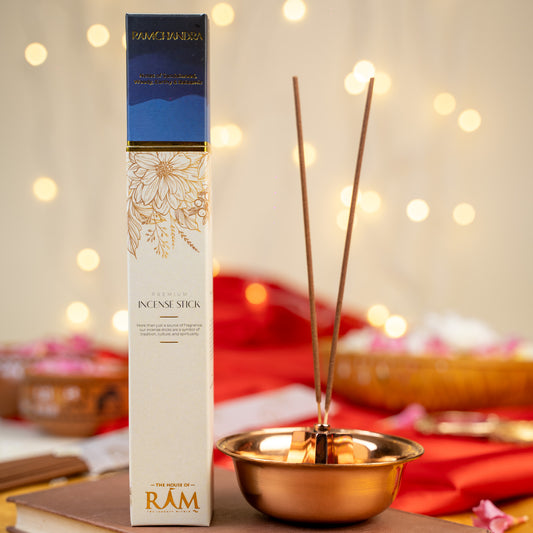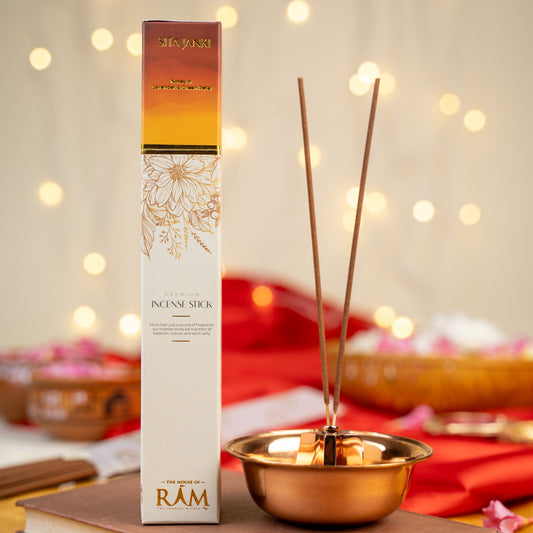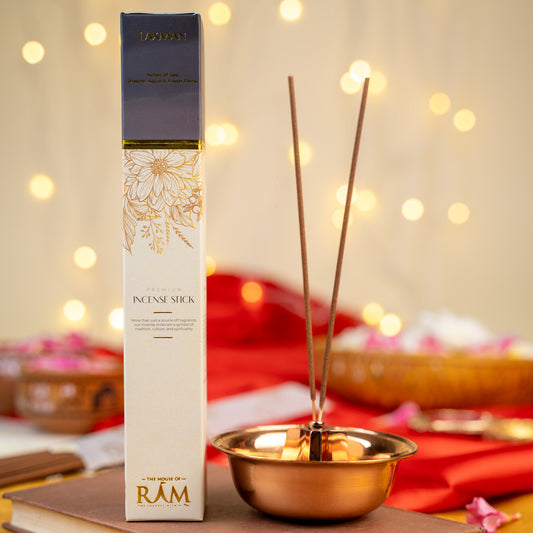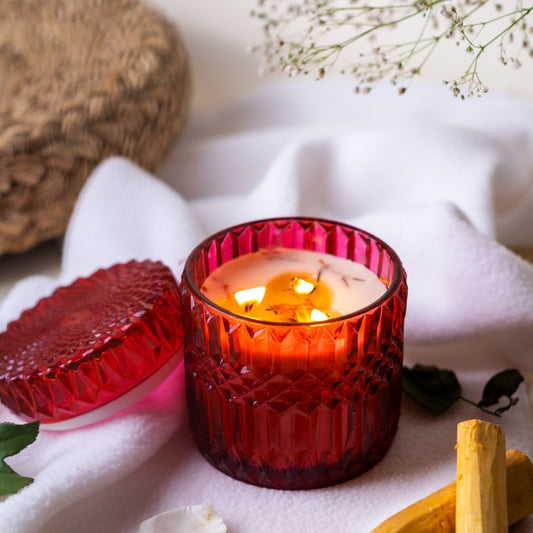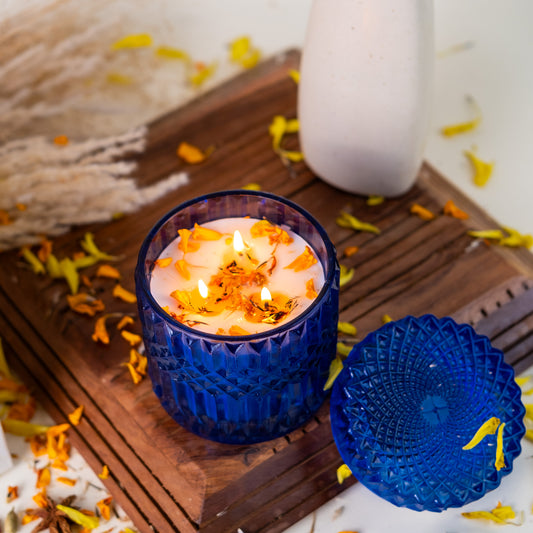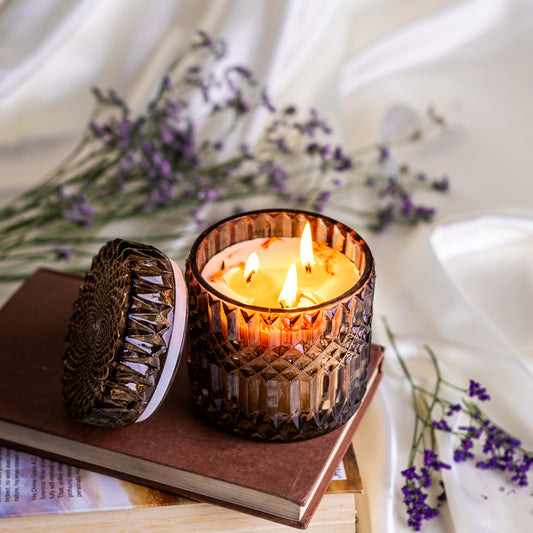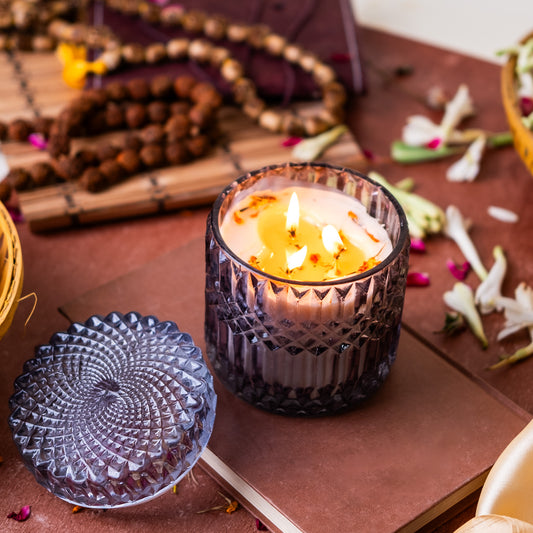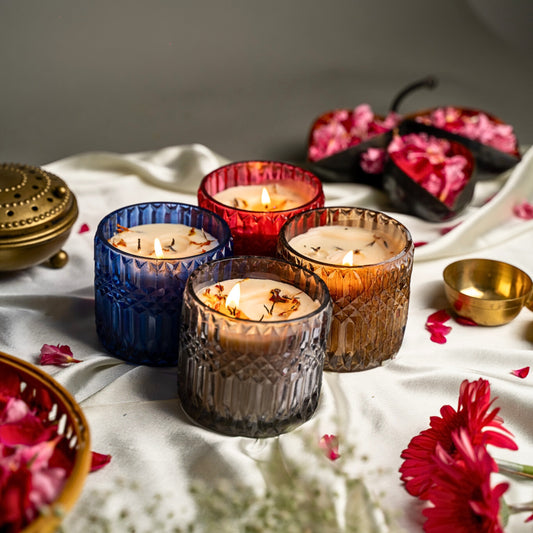Introduction
India is a land of diverse cultures and festivals, each with its unique significance and traditions. Among these, the Rakhi Festival, also known as Raksha Bandhan, stands out as a celebration of the eternal bond between siblings. Observed on the full moon day in the Hindu month of Shravana, Rakhi holds a special place in the hearts of Indians, exemplifying love, protection, and unity. This blog post takes you on a journey through the captivating history of Rakhi, exploring its mythological origin, customs, and broader social impact. Check out The House of Ram’s pure
Tulsi bead rakhis blessed at the Hanuman Garhi temple in Ayodhya.
The Mythological Origin
Rakhi finds its roots in the rich tapestry of ancient Indian mythology, where countless tales glorify the bond between brothers and sisters. One of the most renowned stories revolves around Lord Krishna and Draupadi. When Draupadi tore a piece of her saree to bandage Krishna's wounded finger, he vowed to protect her in times of need. This touching incident portrays the essence of Rakhi, where brothers pledge to safeguard their sisters.
Another tale recounts the story of the King of Gods, Indra, and his wife Sachi. During a fierce battle, Sachi tied a sacred thread on Indra's wrist, seeking divine protection. Touched by her love and concern, Indra promised to protect her and fulfill her wishes. This tale emphasizes the sacredness of the Rakhi thread and its power to strengthen the bond between siblings.
Traditions & Customs
Raksha Bandhan is a time of joy and celebration for families across India. Sisters eagerly prepare for the day by selecting beautiful Rakhis, often adorned with beads, stones, and other decorations. On this auspicious day, sisters perform a ritual of tying a sacred thread around their brothers wrists. This simple yet profound act symbolizes love, respect, and protection.
In return, brothers shower their sisters with gifts and blessings, promising to stand by them in times of happiness and adversity. The exchange of gifts represents the reciprocity of love and care in this unique bond. The festival extends beyond siblings, with cousins, close friends, and even neighbors participating in this heartwarming tradition, creating a sense of camaraderie and unity in the community.
Rakhi around the world
With the Indian diaspora spreading across the globe, Rakhi has transcended borders and is now celebrated with enthusiasm and fervor in various countries. Countries like Nepal, Mauritius, and the United Kingdom have significant Indian communities that mark the occasion with cultural pride. This global celebration of Rakhi has become an essential way to connect with cultural roots and maintain familial bonds despite geographical distances.
The festival's international appeal has led to cultural exchanges, where people from different backgrounds come together to participate in the joyous celebrations. This cultural amalgamation adds a unique flavor to the festival, making it a truly global celebration of love and unity.
Raksha Bandhan, the festival of sibling love, is a timeless tradition that transcends time and space. It reminds us of the sacred bond between siblings and the significance of protecting and supporting one another. The captivating history, mythological tales, and cultural significance of Rakhi make it a cherished celebration in India and across the world.
As Rakhi approaches, let us cherish the relationships that make life truly meaningful. Let us celebrate the love, protection, and unity that Rakhi represents. Whether near or far, reach out to your siblings and loved ones, tying the sacred thread of Rakhi to remind them of our eternal love and commitment. This Rakhi, let us strengthen the bond of sibling love with The House of Ram’s pure Tulsi bead rakhis and rejoice in the joyous festival that celebrates the
essence of life - love, protection, and togetherness.
Happy Raksha Bandhan!

